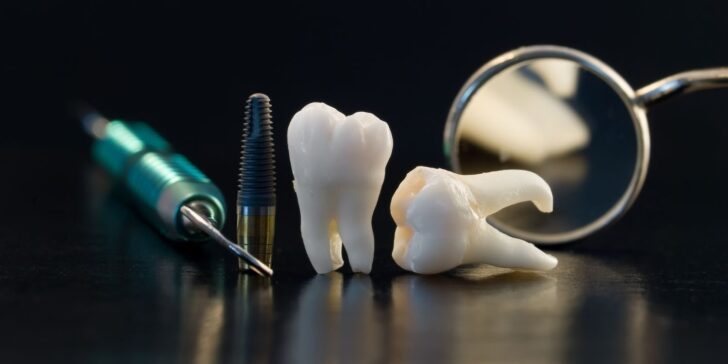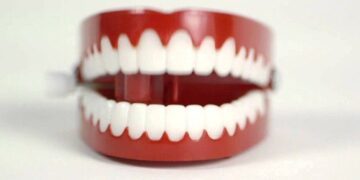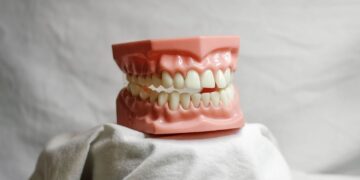Have you ever wondered why we have wisdom teeth? These molars at the back of our jaw may seem like an inconvenience, but they actually served a crucial purpose for our early ancestors.
Here we’ll explore the history of wisdom teeth, when they typically emerge, and why some people are born without them.
We’ll also delve into the problems that can arise with wisdom teeth and why some people choose to have them removed.
Why do people have wisdom teeth?
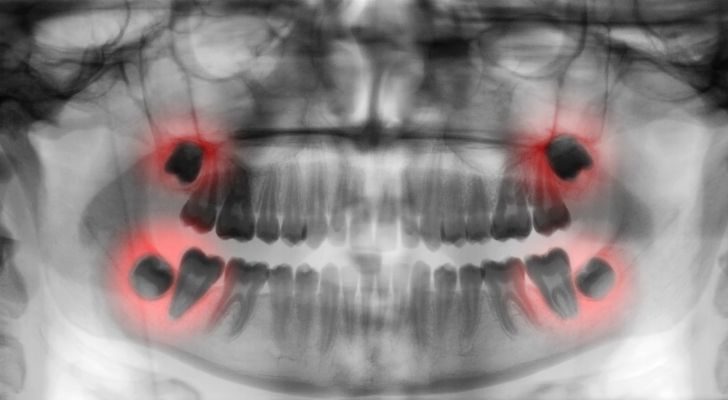
Tucked away at the farthest corner of your jaw lies your wisdom teeth. And like other molars, they help grind food for easier swallowing and digestion.
Wisdom teeth suited the rough caveman diet when they ate lots of nuts, roots, and uncooked meat.
Since they hadn’t perfected cooking, early humans needed an efficient way to crush food before swallowing it.
Their broad jaws could hold the extra set of teeth in the back, so it was no hassle. Although these days, humans don’t really need the third molars.
We’ve developed numerous techniques for making food easier to chew. With various cooking processes and cutlery for cutting bite-sized pieces, we don’t have much use for wisdom teeth anymore.
It’s a vestigial structure, like your appendix, which no longer functions.
At what age do people get their wisdom teeth?
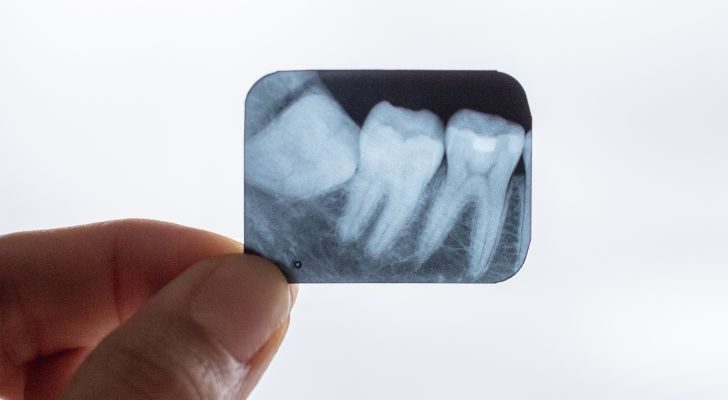
Your wisdom teeth only show up long after you’ve stopped receiving gifts from the tooth fairy, usually around the time when you’re graduating high school or starting college.
Although wisdom teeth erupt in your late teens or early twenties, they begin development much earlier, at about 7 to 10 years old.
Once formed, they stay tucked away in your jaw until it’s time to appear.
But if the wisdom teeth develop while you’re still a child, why do they take so long to come up?
The answer is space. Wisdom teeth need room on your jaw to grow, and a child’s jaw isn’t big enough.
The older you get, the larger your jaw becomes too. Therefore, in early adulthood, your jaws have more capacity to accommodate the third molars.
You can tell your wisdom teeth are beginning to erupt when you get some soreness or lingering gum pain at the back of your jaw.
Males usually get their wisdom teeth earlier than females, and those on your upper jaw typically appear first.
Nevertheless, it may take years for your wisdom teeth to grow out completely.
Why are some people born without wisdom teeth?

Not everyone has wisdom teeth. About 25% of people have anywhere from 1-3 wisdom teeth, while about 35% have none.
Some experts believe that because our jaws are generally too small to hold wisdom teeth comfortably, we’re evolving to eliminate them.
And at this rate, wisdom teeth could disappear entirely in the future.
Why are wisdom teeth so problematic?

Multiple things can go wrong with wisdom teeth, so most people pull theirs out before complications arise.
Impacted wisdom teeth are pretty common. Other issues include overcrowding, gum disease, tooth decay, and infection.
Most wisdom teeth problems are due to the inadequate room to grow. If your wisdom tooth doesn’t get enough space to grow, it might stay trapped in your jaw.
They may also erupt at an awkward angle. This threatens the health of your gums and other teeth.
If your jaw is overcrowded, your wisdom teeth may erode the enamel of surrounding teeth. Down the line, this may lead to severe problems such as infections and tooth decay.
While wisdom teeth can be problematic, they’re not always bad. Some people have zero third molar issues and can keep theirs.
We have wisdom teeth because they were crucial for our ancestor’s diet. They efficiently crushed the tough diet of early humans and made swallowing and digestion easier.
But now that our meals have become much easier to chew, we don’t seem to need them anymore. Our jaws are also much smaller, which leaves no room for wisdom teeth to grow.
Whether you choose to keep your wisdom teeth or have them removed, one thing is clear – these molars have a fascinating history and continue to intrigue us today.

